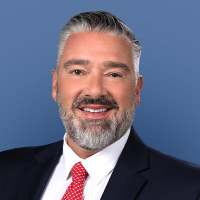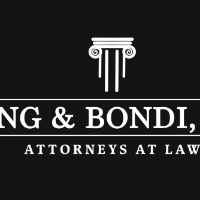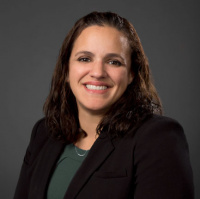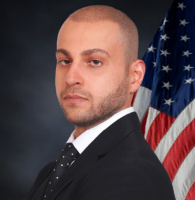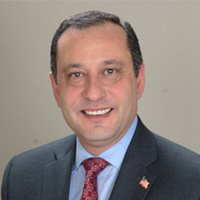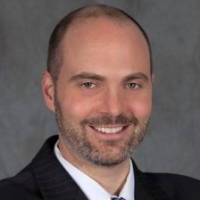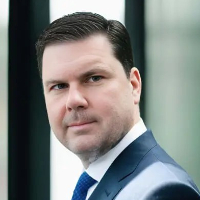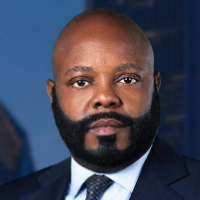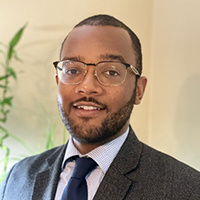Braidwood DUI-DWI Lawyers, Illinois
Sponsored Law Firm
-
 x
x

Click For More Info:
-
LaPapa Law Group
10704 S Western Ave Chicago, IL 60643» view mapAccident & Injury Law, Criminal Defense Changing Lives One Case At A Time
At LaPapa Law Group, we understand that life doesn’t always go as planned. We have the knowledge and experience needed to competently represent you in court.
800-694-2681
Sponsored Lawyers
1-10 of 49 matches
Criminal, Traffic, DUI-DWI, Misdemeanor, White Collar Crime
Attorney Eric J. Blatti was born in the state of Illinois, specifically the Joliet area. He has since remained a part of the local community. Eric graduated from Joliet Township High School and attended Joliet Junior College where he received his Associate's Degree in Arts. After junior college, he continued his education and graduated from Lewis University with a Bachelor's Degree in Political Science (Cum Laude). Eric then attended the Thomas M. Cooley Law School. He earned his Juris Doctor agree in January of 2008 (Dean's List). While in law school, Eric interned for the Will County Public Defender's office. In 2008, he passed the Illinois State Bar and was hired as a full-time-attorney. As an Assistant Public Defender, Eric earned the respect of fellow attorneys and judges. He had a reputation as a fearless litigator and persuasive negotiator. He gained valuable experience by trying over 50 cases, including both jury trials and bench trials. Utilizing his extensive legal knowledge and effective trial skills, Eric now operates his own practice and serves Chicagoland in the areas of criminal defense, traffic crimes, DUI, expungement, driver's license reinstatement, and divorce and family law. He maintains active memberships in the Will County Bar Association and Illinois State Bar Association. Attorney Eric J. Blatti and our law firm can assist you with your Will County, Kendall County, or Grundy County case. Call 815-666-2740 or contact us online to schedule a free initial consultation at our Plainfield law office.
(more)Accident & Injury, Car Accident, Criminal, DUI-DWI, Medical Malpractice
David M. Carlson, an esteemed attorney with a notable track record, currently practices personal injury and criminal defense law. He has been duly admitted to the Illinois bar since 2001 and is also accredited to practice before the United States District Courts for the Northern Districts of Illinois and Indiana since 2002 and 2003, respectively. His legal career is distinguished by his comprehensive understanding and application of the law, drawn from his extensive educational background and professional experiences. David completed his law degree at Northern Illinois University College of Law in 2001, where he was honored as the class speaker at his graduation. He furthered his education with a specialized program in 2021 through the Judicial Education Program at George Mason University's Antonin Scalia School of Law. This program enhanced his knowledge in a broad range of topics, including corporate governance, economics, and the responsibilities of corporate entities towards stakeholders. Before commencing his law studies, David earned a Bachelor’s degree in Political Science from the University of Arizona in 1993. Throughout his college years, he was an active member of Delta Tau Delta Fraternity and worked various jobs, from delivering packages for United Parcel Service to construction work, to finance his education. Alongside practicing law, David served in the judiciary from 2013 to 2024. He began as an Associate Judge in the 12th Judicial Circuit, Will County, Illinois, where he handled an array of cases spanning family law to civil and criminal matters. Following this role, he was promoted to Circuit Judge, presiding over the felony division, which is the second largest in the state. Under his leadership, his team was responsible for managing a robust caseload and integrating new technological systems into the court’s operations. He was commended for his diligence and commitment to justice and retention in a 2020 general election with a significant majority vote affirmed his position. Today, David is not only a member of the Illinois State Bar Association but also retains his connections with the Illinois Judges Association, reflecting his ongoing commitment to his professional community. His former role as both Associate Judge and Circuit Judge illustrates his depth of experience and leadership abilities, particularly in managing complex legal challenges and advancing judiciary processes. David M. Carlson is more than just a seasoned attorney; he is a respected professional who brings a wealth of knowledge, a deep sense of responsibility, and proven leadership to every case. He represents clients with both tenacity and integrity, ensuring that their legal needs are met with the highest standards of excellence.
(more)Criminal, Felony, DUI-DWI, Misdemeanor, Expungement
Marisa Bondi, one of the managing Partners & Owners at King & Bondi, LLC., has years of experience practicing specifically Criminal Law and Traffic. Her focus is to help her Clients achieve the best outcome for their specific needs. She has been participating in trials/litigating for years. She serves Will & DuPage County. Please contact her for any questions you may have.
(more)Criminal, DUI-DWI, Juvenile Law, Traffic, Felony
Kristine Honiotes is a trial lawyer with over 12 years of experience. As a former Will County Assistant Public Defender, she defended all types of felony and misdemeanor cases including murder, domestic violence, DUI, drug offenses, and other serious felony offenses. From our office in Joliet, Illinois we serve clients throughout Will County, DuPage County, and Cook County including but not limited to Lockport, Plainfield, Crest Hill, Romeoville, Bolingbrook, Aurora, New Lenox, Mokena, Homer Glen, Frankfort, Peotone, Shorewood, Manhattan, Wheaton and Downers Grove.
(more)Criminal, DUI-DWI, Felony, White Collar Crime, Personal Injury
Khaled Issa is a well-versed trial attorney with more than 10 years of legal experience. Knowledgeable in many areas of law, Attorney Issa concentrates his practice in the areas of criminal defense and personal injury. In 2021, Kal established his private practice, Issa Law, LLC, after his former partner James Payonk retired. Located in Orland Park, Attorney Issa works diligently to help his clients achieve legal success. To schedule an initial consultation with a skilled Will County criminal defense attorney, visit Kal's website or call 708-966-2408.
(more)Accident & Injury, Workers' Compensation, Criminal, Car Accident, DUI-DWI
John Fotopoulos of Fotopoulos Law established the firm on two simple firm principals: to have competitive rates allowing everyone to afford the advice they need and to have attorneys who are always available to their clients. Attorney Fotopoulos concentrates on personal injury, workers' compensation, criminal defense, and DUI defense in DuPage, Kankakee, and Will Counties. Our attorneys take immense pride in their work, fulfilling a great deal of credits in continuing education seminars to ensure their compliance and competency, in addition to countless hours of legal research to ensure they stay ahead of the competition and are fully educated to take care of your legal needs. This practice ensures that our counsel maintain a fresh prospective on their specific industry. Stagnancy creates an environment not conducive to growth. Schedule your free consultation with the Joliet Personal Injury & Criminal Defense Attorney online or by calling 708-942-8400.
(more)Criminal, Felony, DUI-DWI, Juvenile Law
In 2007, Brett Appelman established Appelman Law LLC with the mission of safeguarding and advocating for the rights of individuals accused of crimes. Brett firmly believes that every defendant, regardless of the charges they face, deserves the most exceptional legal defense possible. Brett personally handles a wide array of complex cases at the highest level, including Attempted Murder, Kidnapping, Aggravated Sexual Assault, and individuals charged with multiple DUI offenses. He has consistently achieved successful outcomes for clients facing various criminal charges, such as DUI, Aggravated Battery, Solicitation, Attempted Murder, Armed Robbery, Tax Evasion, and Felony Drug Possession and Delivery. Originally from Ann Arbor, Michigan, Brett pursued his undergraduate studies at the University of Michigan. He then earned a Master's Degree in Forensic Psychology from the John Jay College of Criminal Justice before attending law school at the University of Wisconsin. Prior to establishing his own firm, Brett gained valuable experience as an Assistant Public Defender in Kane County, Illinois. During his time there, he defended numerous DUI and Driving While Suspended cases, as well as various misdemeanors. Additionally, Brett served as the defense attorney on the board of the Treatment Alternative Court, Kane County's specialized mental health court. In a remarkable accomplishment in 2016, Brett secured a Not Guilty By Reason Of Insanity verdict in a felony trial, sparing his client from potentially facing decades of imprisonment for aggravated battery with a deadly weapon. To schedule your free consultation with the Naperville, IL Criminal Defense Attorney, visit online or call 630-717-7801.
(more)Criminal, DUI-DWI, Felony, Misdemeanor, Juvenile Law
In law school, David commenced his legal experience as a law clerk in the elite Homicide Task Force of the Cook County Public Defender’s Office, where he learned trial skills from Assistant Public Defender Marijane Placek, an attorney whose legendary exploits in Chicago criminal courtrooms had been made into two books. Later, as a third-year law student, David argued motions and assisted with trials as a Rule 711 licensed law clerk in the felony division of the Public Defender’s Office. David also served as a law clerk in Chicago-Kent’s in-house legal clinic and was awarded the 2014 Fleischman Family Award for Excellence in Criminal Clinic for his zealous advocacy on behalf of the clinic’s clients.
(more)Traffic, DUI-DWI
Craig L. Boston is the owner of a legal practice focused on traffic and DUI defense. He earned his Juris Doctorate cum laude from Northern Illinois University College of Law in 2009 and a Bachelor of Arts with a perfect 4.0 GPA from National-Louis University. Admitted to practice in Illinois since 2009, Craig has been recognized with numerous honors, including being named an Elite Lawyer in 2024 and earning top rankings from Expertise.com and ThreeBest Rated for DUI defense. His previous roles include serving as a DuPage County Assistant State’s Attorney and as an Associate Attorney at the Law Office of Vincent Cornelius. Craig is a member of the DuPage County, Will County, and Illinois State Bar Associations, demonstrating his commitment to professional excellence and community service. Please reach out online or call us at 630-445-2295, to schedule your free consultation with our Naperville Traffic Defense Attorney.
(more)Criminal, Traffic, DUI-DWI, Divorce & Family Law, Accident & Injury
Christopher has been instrumental in facilitating positive outcomes for criminal and civil cases. With half a decade of industry experience, Christopher is the principal owner of the Law Office of C.M.R. Wright. Most notably, Christopher has successfully represented a variety of clients. He is a graduate of Thurgood Marshall School of Law. He is an active member of the Illinois Bar Association and the Cook County Bar Association. Outside of the office, Christopher enjoys watching sports, traveling, art, and staying active. He grew up in Illinois and he currently lives in the Chicagoland area.
(more)


 Gregory R. LaPapa Chicago, IL
Gregory R. LaPapa Chicago, IL Practice AreasExpertise
Practice AreasExpertise


